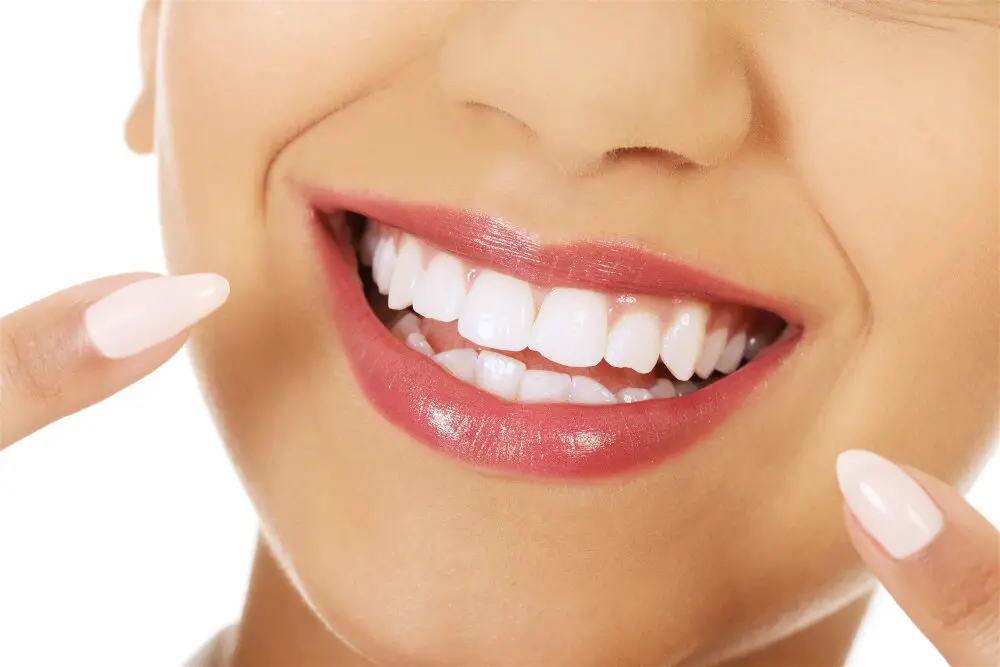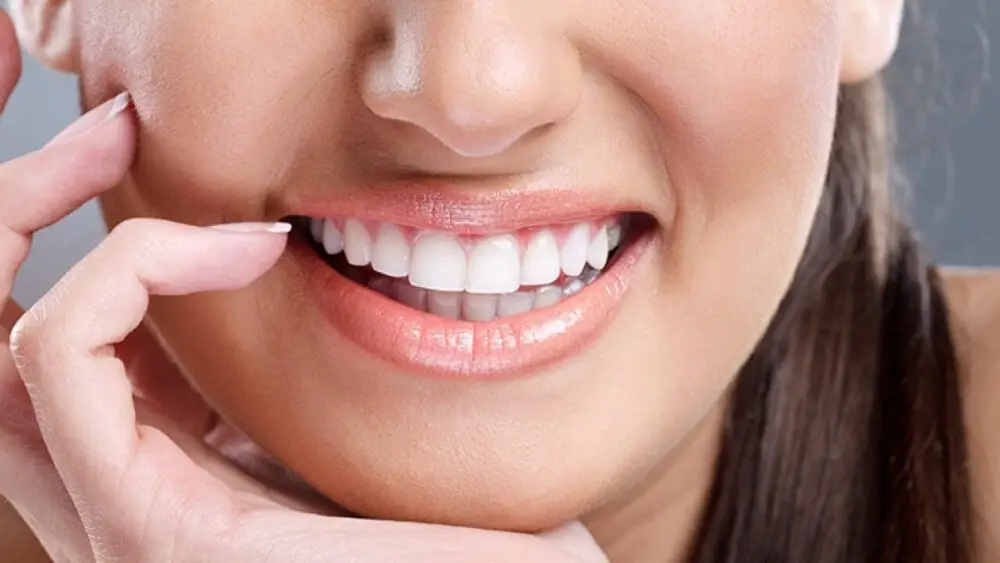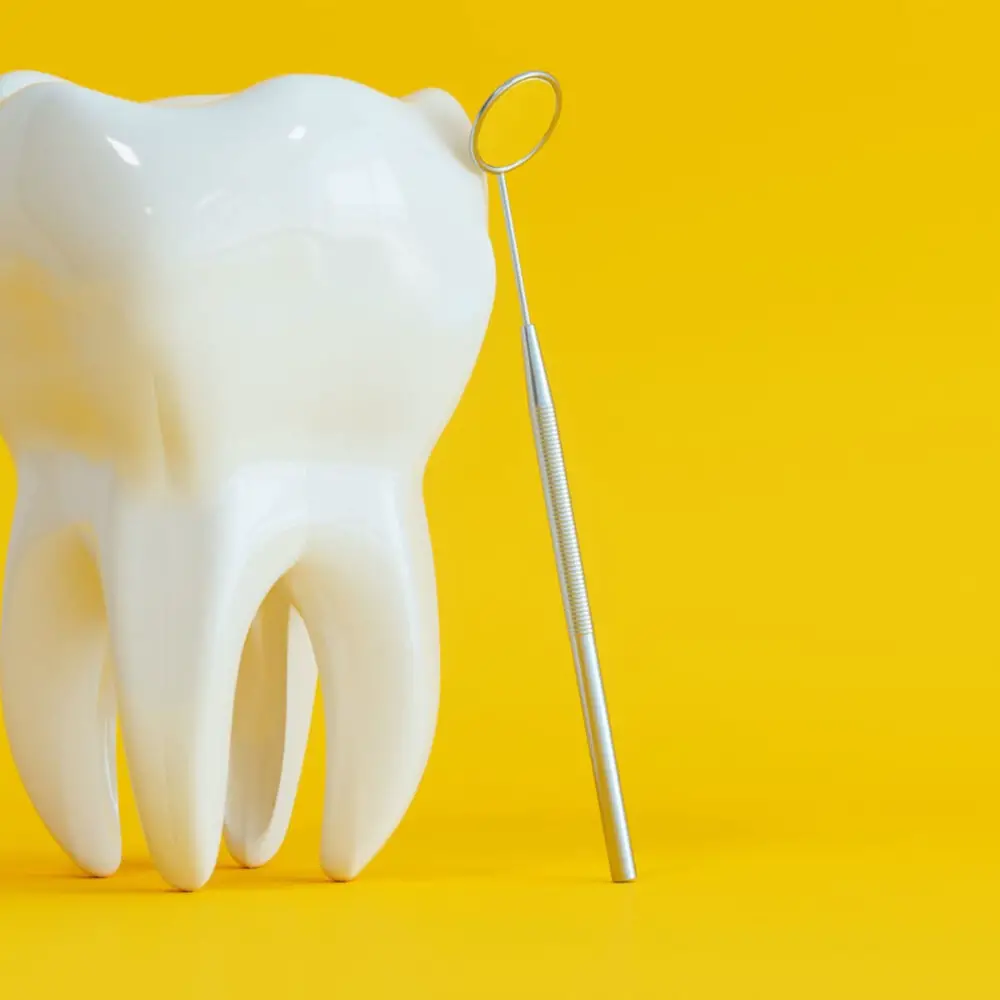Painless PostWhitening: Easy Ways to Soothe Teeth Sensitivity

Teeth sensitivity or tooth hypersensitivity is a common dental problem that affects millions of people worldwide. It is characterized by a sharp, sudden, and often painful sensation when the teeth come into contact with hot, cold, sweet, or acidic substances. Sensitivity can occur after a dental procedure, such as teeth whitening, or due to poor dental hygiene, gum disease, or tooth decay. The discomfort can be severe enough to interfere with daily activities such as eating, drinking, and brushing. Fortunately, there are several easy and painless ways to soothe teeth sensitivity and improve dental health. If you have sensitive teeth, you are not alone. It is estimated that 1 in 8 people experience some degree of tooth sensitivity, which can range from mild to severe. The good news is that there are many simple and effective ways to alleviate the discomfort and prevent further damage to your teeth. In this article, we will explore the causes of tooth sensitivity, the effects of teeth whitening on sensitivity, and the top tips for painless post-whitening care. Whether you are looking for quick relief or long-term solutions, we have got you covered!
Teeth sensitivity after whitening is a common phenomenon experienced by many individuals. This occurs when the tooth enamel is weakened by the bleaching agents used during the whitening process, exposing the sensitive dentin layer underneath. The dentin layer contains microscopic tubes that connect to nerve endings, causing discomfort when exposed to hot or cold temperatures. The level of sensitivity varies from person to person and can last for a few days to a week. To soothe the discomfort, individuals can try using desensitizing toothpaste, avoiding acidic or sugary foods, and using a soft-bristled toothbrush. In severe cases, it is advisable to consult a dentist who can recommend professional treatments to alleviate the sensitivity.
After undergoing a teeth whitening treatment, the importance of painless post-whitening care cannot be overstated. Teeth sensitivity is a common side effect of whitening treatments, which can cause patients to experience discomfort, pain, and even avoid certain foods and drinks. Therefore, it is crucial to take extra care of your teeth after the treatment to soothe any sensitivity and avoid any further damage to your teeth. Simple practices like using a desensitizing toothpaste, avoiding hot or cold foods and drinks, and using a soft-bristled toothbrush can go a long way in ensuring you maintain a bright and pain-free smile. By following these painless post-whitening care practices, you can enjoy the benefits of your teeth whitening treatment without any discomfort or pain.
Use desensitizing toothpaste

Tooth sensitivity is a common problem that many people face after teeth whitening treatments. The use of desensitizing toothpaste can help alleviate the discomfort and pain associated with sensitive teeth. These types of toothpaste contain ingredients that help block the nerve endings in the teeth, reducing the sensitivity and discomfort that can occur after teeth whitening. Some of the common ingredients found in desensitizing toothpaste include potassium nitrate, fluoride, and strontium chloride. These ingredients work together to help protect the teeth against sensitivity caused by hot or cold temperatures, acidic foods, and other irritants. When using desensitizing toothpaste, it is important to follow the instructions provided by the manufacturer. Most toothpaste manufacturers recommend using the toothpaste twice a day for at least two weeks to see maximum results. In addition to using desensitizing toothpaste, it is also important to avoid consuming foods and drinks that can cause sensitivity to the teeth. Acidic foods and drinks, such as citrus fruits, soda, and coffee, can contribute to tooth sensitivity and should be consumed in moderation. By taking these simple steps, individuals can enjoy the benefits of teeth whitening without experiencing the discomfort associated with sensitive teeth.
Desensitizing toothpaste works by blocking the tiny tubules, or channels, in the dentin layer of the tooth that lead to the nerve. These channels can become exposed due to factors such as receding gums or enamel erosion, causing sensitivity to hot, cold, sweet, or acidic food and drinks. The active ingredients in desensitizing toothpaste, such as potassium nitrate or strontium chloride, penetrate the dentin and form a protective layer over the tubules, preventing external stimuli from reaching the nerve. With regular use, desensitizing toothpaste can provide relief from tooth sensitivity and improve overall oral health. However, it’s important to note that desensitizing toothpaste is not a cure for underlying dental issues and should be used in conjunction with proper oral hygiene and professional dental care.
When it comes to post-whitening treatments for teeth sensitivity, there are several brands that are highly recommended by dentists and users alike. One such brand is Sensodyne, which offers a range of toothpaste and mouthwash products specifically designed to alleviate sensitivity. Another popular brand is Colgate, which offers a similar range of products that are proven to be effective in reducing sensitivity. In terms of usage instructions, it is important to follow the guidelines provided by the manufacturer. Generally, this involves using the product regularly, usually twice a day, and avoiding abrasive toothbrushes and acidic foods and drinks. It is also important to consult with a dentist if sensitivity persists or worsens, as this may be a sign of a more serious underlying condition.
Avoid hot and cold foods and drinks

One of the most common complaints after teeth whitening treatments is tooth sensitivity, which can be triggered by hot and cold foods and drinks. To avoid aggravating the sensitivity, it is recommended to avoid consuming such foods and beverages. This includes hot tea or coffee, ice cream, and even ice-cold water. Instead, opt for lukewarm or room temperature drinks and foods to minimize the discomfort. In addition to avoiding hot and cold foods and drinks, there are other steps you can take to soothe teeth sensitivity after whitening treatments. Using desensitizing toothpaste, which contains compounds like potassium nitrate and fluoride, can help to alleviate the sensitivity. Rinsing your mouth with a saltwater solution can also help to reduce inflammation and soothe the gums. If you continue to experience sensitivity, it is important to speak with your dentist, who may recommend additional treatments or adjustments to your oral care routine.
Temperature plays a significant role in affecting tooth sensitivity as it can trigger pain and discomfort. Changes in temperature can cause the tooth enamel to expand or contract, which can expose the underlying dentin layer of the tooth. When the dentin is exposed, it can lead to sensitivity to hot or cold foods and beverages. Additionally, extreme temperatures can cause inflammation and irritation of the nerve endings in the teeth, resulting in pain. Therefore, it is essential to be cautious with the temperature of food and drinks and take necessary precautions to prevent discomfort and sensitivity.
If you have sensitive teeth, it’s important to be mindful of the foods and drinks you consume. Acidic foods and drinks such as citrus fruits, tomatoes, and carbonated beverages can wear away tooth enamel, making your teeth more sensitive. Sugary and starchy foods can also contribute to sensitivity by promoting tooth decay and gum disease. Additionally, hot and cold foods and drinks can trigger sensitivity, so it’s best to avoid extreme temperatures. Instead, opt for foods that are low in acid and sugar, such as dairy products, lean proteins, and leafy greens. Drinking plenty of water can also help to rinse away harmful acids and bacteria in the mouth. By avoiding certain foods and drinks and choosing tooth-friendly options, you can help reduce tooth sensitivity and maintain a healthy smile.
Rinse with salt water

For those who have recently undergone teeth whitening treatments, tooth sensitivity can be a common and uncomfortable side effect. One easy and effective way to alleviate this discomfort is by rinsing with salt water. Salt is a natural anti-inflammatory agent, and the warm water helps to soothe any pain or inflammation in the teeth and gums. To rinse with salt water, simply mix a teaspoon of salt into a cup of warm water and swish it around your mouth for 30 seconds to a minute. This can be done multiple times a day, as needed, to help reduce sensitivity and ensure a more comfortable recovery after whitening treatments. Additionally, salt water rinses can also promote overall oral health by reducing bacteria and plaque buildup in the mouth. Overall, rinsing with salt water is a simple and effective way to soothe tooth sensitivity after whitening treatments.
Salt water is a natural remedy that has been used for centuries to alleviate tooth sensitivity. The salt in the water helps to reduce inflammation and soothe any irritation or swelling that may be causing discomfort. Additionally, salt water can help to remove any bacteria or debris that may be causing sensitivity, promoting better oral hygiene overall. By swishing with salt water for just a few minutes each day, individuals can experience relief from tooth sensitivity without having to rely on harsh chemical treatments or medications. This simple and effective solution is an excellent way to promote healthy teeth and gums while reducing discomfort and pain caused by sensitivity.
If you experience tooth sensitivity after a whitening treatment, a salt water rinse can provide relief. To make the rinse, dissolve a teaspoon of salt in a cup of warm water and stir until the salt is completely dissolved. Take a sip of the mixture and swish it around your mouth for about 30 seconds before spitting it out. Repeat this process a few times a day or as needed. The salt water rinse can help soothe your teeth by reducing inflammation and killing bacteria in your mouth. It is a simple and natural remedy that can be easily made and used at home.
Apply a fluoride gel

One of the easy ways to soothe teeth sensitivity after whitening is to apply a fluoride gel. Fluoride is a natural mineral that helps to strengthen teeth enamel and reduce the risk of tooth decay. Applying a fluoride gel after whitening can help to replenish the lost minerals and provide a protective layer to the teeth. The fluoride gel is typically applied using a custom-fitted tray that is worn for a few minutes. This process helps to ensure that the fluoride reaches all the crevices and grooves in the teeth, providing maximum protection. Fluoride gels are available over-the-counter or prescribed by a dentist. The strength and concentration of the fluoride gel may vary depending on the individual’s needs. It is important to follow the instructions carefully and not to overuse the fluoride gel, as excessive use may lead to fluorosis or other dental problems. Regular use of fluoride gel can help to reduce sensitivity and maintain good oral health, making it an essential part of post-whitening care.
Fluoride is a mineral that can help strengthen teeth and reduce sensitivity by forming a protective layer on the tooth enamel. When you consume fluoride, it becomes incorporated into your teeth, making them more resistant to acid attacks from bacteria and food. This helps prevent tooth decay and cavities, which can cause sensitivity. Fluoride also helps repair small areas of damage to the enamel, which can further reduce sensitivity. Additionally, fluoride can help remineralize the enamel, making it stronger and less porous, which can also reduce sensitivity. Overall, incorporating fluoride into your dental routine can be a simple and effective way to promote stronger, healthier teeth and reduce sensitivity.
When it comes to soothing teeth sensitivity after whitening, there are a few recommended brands and usage instructions to keep in mind. For immediate relief, many dental professionals recommend using a desensitizing gel such as Colgate Sensitive Pro-Relief or Sensodyne Rapid Relief. These gels can be applied directly to the affected teeth using a toothbrush or finger and should be left on for several minutes before rinsing. Another option is to use a toothpaste specifically designed for sensitive teeth, such as Crest Sensi-Stop or Tom’s of Maine Rapid Relief, which can provide long-term relief with regular use. It’s important to follow the usage instructions carefully and to avoid any abrasive or acidic foods and drinks that can further aggravate sensitivity.
After undergoing a teeth whitening treatment, it is important to take care of your teeth to avoid any discomfort or sensitivity. Firstly, avoid consuming food or drinks that can stain your teeth for at least 24 hours. Secondly, use a desensitizing toothpaste or gel to reduce sensitivity and to strengthen your teeth. Thirdly, avoid brushing your teeth too hard or using a hard-bristled toothbrush, as this can cause damage to your teeth and gums. Finally, visit your dentist regularly to maintain your oral health and to ensure that your teeth remain healthy and white. By following these painless post-whitening care tips, you can keep your teeth looking bright and healthy while avoiding any discomfort or sensitivity.
If you’re experiencing prolonged sensitivity after a whitening treatment, it’s important to seek professional help. While there are a variety of at-home remedies that can provide temporary relief, it’s possible that the sensitivity is a sign of an underlying issue that requires professional attention. A dentist can examine your teeth and determine the root cause of the sensitivity, which may be related to an untreated cavity or gum disease. Ignoring persistent sensitivity could lead to further damage to your teeth and gums, so it’s best to address the issue as soon as possible. Don’t hesitate to make an appointment with your dentist and take control of your dental health.
Conclusion

In conclusion, experiencing teeth sensitivity after teeth whitening procedures can be a common issue that people face. However, with the right techniques and products, it doesn’t have to be a painful experience. There are many easy and effective ways to soothe teeth sensitivity, such as using desensitizing toothpaste, avoiding hot and cold foods and drinks, and utilizing home remedies like rinsing with saltwater or applying clove oil. By taking care of your teeth and treating sensitivity with gentle care, you can enjoy a brighter, healthier smile without any unnecessary discomfort or pain. So, don’t let teeth sensitivity hold you back from achieving the smile you desire. Follow these easy tips and enjoy the benefits of painless post-whitening.







